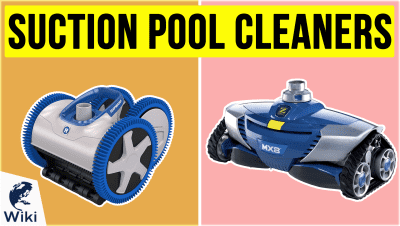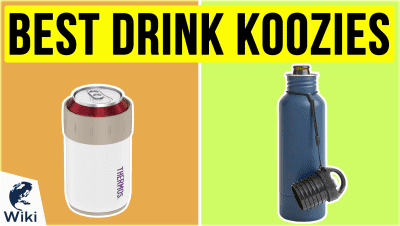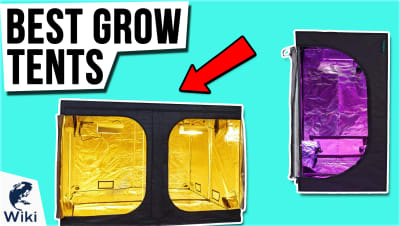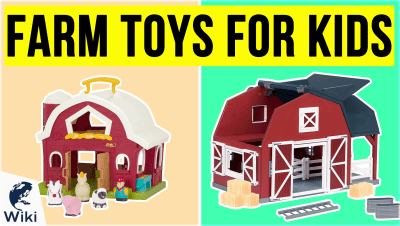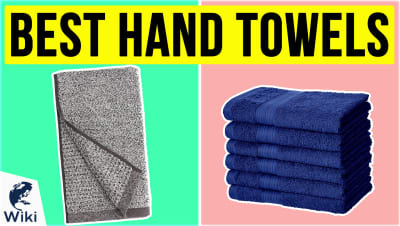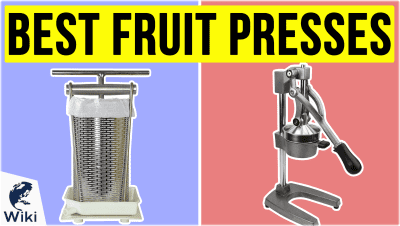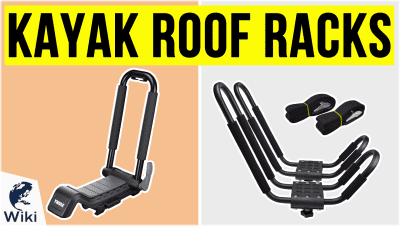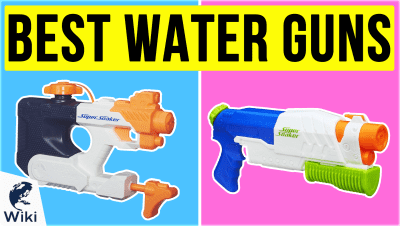6 Organizations Tackling The Global Water Crisis
While progress has been made, there are still a staggering number of people all over the globe who lack access to clean drinking water or sanitation services. These organizations are targeting specific areas and providing sustainable solutions to ensure children of the future do not have to suffer from preventable diseases, offering financing, technology, and infrastructure across multiple continents. This video was made with Ezvid Wikimaker.
6 Groups Addressing The Water Crisis
| Name | Headquarters | Focus |
|---|---|---|
| Safe Water Network | New York, NY | Works with communities to support locally-owned and operated water stations, digital finance tools, and solar power |
| Water Mission | N. Charleston, SC | Creates customized engineering solutions in Africa, Asia, Latin America and the Caribbean |
| Community Water Center | Sacramento, Visalia, and Watsonville, CA | Addresses challenges in small, rural, low-income communities, and communities of color through training, advocacy, and providing legal counsel |
| Pure Water for the World | Rutland, VT | Aims to prevent waterborne diseases in Central America and the Caribbean by working with communities to establish safe water, hygiene and sanitation solutions. |
| Water For People | Denver, CO | Works with local governments, businesses, and community members to fund and maintain necessary infrastructure for sustainable projects that assist hard-to-reach areas |
| Islamic Relief U.S.A | Alexandria, VA | Engages in targeted efforts like solar-powered wells, flood and drought relief, and water pack delivery as part of its emergency and development projects around the world |
Water Mission On The Need For Safe Water
Facts About Water, Sanitation, and Disease
- According to the World Health Organization, as of 2017, 785 million people lacked even a basic drinking-water service, and 2 billion used a source contaminated with feces
- Some common waterborne diseases include diarrhea, cholera, dysentery, typhoid, E. coli and salmonella infection, cryptosporidiosis, hepatitis A, viral gastroenteritis, and polio
- In the least-developed countries, 22% of health care facilities have no water service
- According to the United Nations and UNICEF, one in five girls of primary-school age are not in school, compared to one in six boys. Girls are more likely to be responsible for collecting water for the family, making it difficult for them to attend school
- An estimated 801,000 children younger than 5 years of age perish from diarrhea each year, or 2,200 each day
- 319 million people in Sub-Saharan Africa are without access to a reliable drinking water source
- Half of the world's hospital beds are filled with people suffering from a water-related disease
- Every $1 invested in water and sanitation returns an average of $4 in increased productivity
- Every 2 minutes, a child dies from a water-related disease
- According to World Vision, roughly 2.6 billion people have gained access to clean water in last 25 years
- 80% of wastewater flows back into the ecosystem without being treated or reused
Islamic Relief U.S.A. and Drought in Somalia
In Depth
Water is essential for life, but each year almost one million people worldwide are killed by unsafe water, poor sanitation, and bad hygiene practices. Over 2 billion people drink water that has been contaminated with feces, and at least 4.2 billion people can't access safe sanitation. However, there are nonprofits working to bring clean water and effective sanitation infrastructures to the people and places who need it the most. In no particular order, here are six organizations bringing clean water to the world.
Starting off the list at #1 is Safe Water Network. Founded in 2006 by the late actor and philanthropist Paul Newman, along with prominent civic and business leaders, S.W.N. is committed to bringing safe, reliable, and affordable water to those in need. Since its inception, it has been guided by the premise that locally owned and operated businesses can provide their communities with a safe, affordable, and dependable supply of water that meets quality guidelines. By 2017, the nonprofit had provided water to one million people in 300 communities. It has a 4 star rating with Charity Navigator, and allocates over 76% of its spending to its programs.
Safe Water Network works with communities in Ghana and India to develop locally owned and managed Safe Water Stations. It also has advocacy teams in Accra and New Delhi that advance policy, site management, operating and technical expertise of safe water solutions. S.W.N. is committed to optimizations that reduce costs, improve operations, ensure water quality and strengthen its consumer proposition. In addition to its water services, the nonprofit provides communities with digital finance tools, water ATMs, prepaid "smart" meters for household connections, and solar power for their water stations. Safe Water Network accepts donations and interested partners.
Safe Water Network works with communities in Ghana and India to develop locally owned and managed Safe Water Stations.
In the #2 spot is Water Mission. W.M. takes a comprehensive approach to combating the global water crisis by creating customized engineering solutions for each water, sanitation, and hygiene challenge it tackles. It is headquartered in North Charleston, South Carolina, and its staff members include engineers, community development specialists, and researchers. The nonprofit designs safe solutions for communities located in Africa, Asia, Latin America and the Caribbean. Since its founding in 1998, Water Mission has provided nearly four million people in 55 countries with lasting safe water solutions.
Water Mission believes that collaboration and partnership among industry leaders are critical to solving the global water crisis. It provides equipment, technologies, and consulting services to support this mission. Some of the products W.M. offers are pump selection and solar design, remote monitoring technology, and its patented, comprehensive filtration and treatment system. The nonprofit's consulting arm contributes disaster relief, engineering, and community development and sustainability expertise. Water Mission offers a number of ways to get involved, including volunteering, donating, prayer, church involvement, and hosting a fundraising walk.
At #3 is Community Water Center, a California organization that creates community-driven water solutions through activism, education, and advocacy. Founded in 2006, C.W.C. builds strategic grassroots movements to address water challenges in small, rural, low-income communities and communities of color. It has trained thousands of residents as clean water advocates and provided technical and legal assistance to over 50 local water boards and community-based organizations. C.W.C. has also served as legal counsel to a number of small, low-income communities, and has helped 18 communities secure over $17 million in state funding for drinking water projects.
C.W.C. has also served as legal counsel to a number of small, low-income communities, and has helped 18 communities secure over $17 million in state funding for drinking water projects.
Community Water Center focuses on running targeted, limited-duration legislative and municipal campaigns, and providing comprehensive resources on water quality, safety, common contaminants, and more. It offers online fact sheets, climate change reports and guides, and information on how to become involved with local water boards. C.W.C.'s comprehensive Guide to Community Drinking Water Advocacy has been distributed to hundreds of individuals, groups, and neighborhood boards. It also runs the Community Water Leaders Network, a leadership cohort that unites local board members. C.W.C. welcomes donations, new members, and community activism.
Coming in at #4 is Pure Water for the World. PWW is committed to ending the suffering and death among children and their families that is caused by preventable waterborne diseases. It partners with underserved communities in Central America and the Caribbean, and provides the tools and education to establish sustainably safe water, hygiene and sanitation. Pure Water for the World is based in Rutland, VT with offices in Honduras and Haiti. The nonprofit is a boots-on-the-ground organization, with 90% of its staff native to the countries and communities in which they serve.
Pure Water for the World collaborates with community members to develop goals and implementation strategies, and involves them every step of the way. The nonprofit provides many tools to the communities it works with, including bio-sand water filters for school and home use, family and school latrines, parasite treatment, hand-washing stations, and water sourcing solutions. It teaches all community members about safe water and hygiene practices prior to receiving their filters, and designates volunteers who receive extensive upkeep training. PWW offers many ways to get involved, including by donating, volunteering abroad, and fundraising.
PWW offers many ways to get involved, including by donating, volunteering abroad, and fundraising.
In the #5 spot is Water For People. W.F.P. brings together resident entrepreneurs, community members, and local governments to build and deliver water and sanitation services that last. It has worked in more than 40 countries, and its local employees know the culture, language, and communities they serve in. The nonprofit gives reliable assistance for every family, clinic, and school, including the hardest-to-reach, most vulnerable, and marginalized people. W.F.P. works to make sure the utilities it delivers are sustainable, and empowers communities, utility providers, and governments to invest in its long-term solutions.
Water For People's work rests on the four pillars of co-investing, capacity building, monitoring and reporting, and replication. W.F.P. does not fully fund water and sanitation infrastructures on its own, but expects the districts it works with to invest in building and maintaining their own utilities. Each district owns the systems it builds, and its government, communities, and individuals provide support, labor, and skills. The nonprofit has been recognized with several awards, including the 2011 Skoll Foundation Social Entrepreneurship Award. W.F.P. welcomes donations, participation on impact tours, and volunteers.
Finally, in the #6 spot is Islamic Relief U.S.A., which strives to alleviate suffering, hunger, illiteracy, and diseases worldwide, regardless of color, race, religion, or creed, and to provide aid in a compassionate and dignified manner. Incorporated in California in 1993, I.R.U.S.A. supports emergency and development projects in more than thirty countries around the world. It allocates over 89% of its spending to its programs, and in 2018 it earned its twelfth four star rating from Charity Navigator. It has been recognized by The United Nations Relief and Works Agency, and in 2014 became the first official Muslim organization to partner with the American Red Cross.
It allocates over 89% of its spending to its programs, and in 2018 it earned its twelfth four star rating from Charity Navigator.
Islamic Relief U.S.A. has invested in the development of life-changing water initiatives for over 25 years. The nonprofit engages in targeted relief efforts that are tailored to fit each community's need. Notable projects include the construction of solar-powered wells, cholera interventions through water pack delivery, emergency flood relief, and drought-resistant agricultural modeling. In 2018 alone, I.R.U.S.A. helped over 100,000 people with its water and sanitation programs. It provides many ways to contribute, including by donating, volunteering, joining its disaster response team, and shopping through its Amazon Smile portal.

